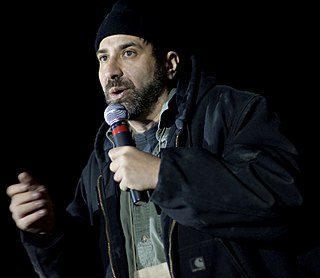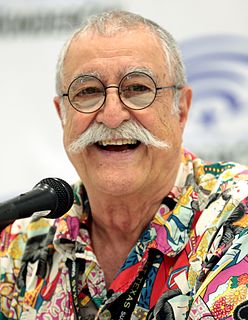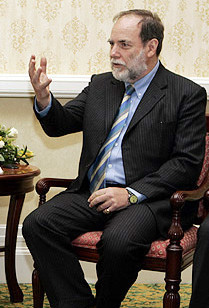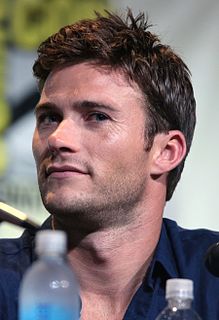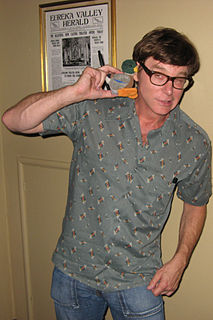A Quote by Dave Attell
You see a guy with one leg, he's got a story. "Land mine '69." You see a guy with one arm, he's got a story, too. "Snow blower, bottle of whiskey." You see a guy with one tooth, what would the story be? "Well, uh, I like a lot of taffy."
Related Quotes
Whenever I read a script or sign a film, I don't see whether he is a bad guy or a good guy. I see how much the character is contributing to the story? How much is the importance of the character in taking the story forward? And what new I would be able to learn and what new I would be able to try in that?
I'm the guy who will persist in his path. I'm the guy who will make you laugh. I'm the guy who strives to be open. I'm the guy who's been heartbroken. I'm the guy who has been on his own, and I'm the guy who's felt alone. I'm the guy who holds your hand, and I'm the guy who will stand up and be a man. I'm the guy who tries to make things better. I'm the guy who's the whitest half Cuban ever. I'm the guy who's lost more than he's won. I'm the guy who's turn, but never spun. I'm the guy you couldn't see. I'm that guy, and that guy is me.
What drew me to Batman in the first place was Bruce Wayne's story, and that he's a real character whose story begins in childhood. He's not a fully formed character like James Bond, so what we're doing is following the journey of this guy from a child who goes through this horrible experience of becoming this extraordinary character. That, for me, became a three-part story. And obviously the third part becomes the ending of the guy's story.
Well, the fella I got on there is hitting pretty good and I know he can make that throw, and if he don't make it that other fella I got coming has shown me a lot, and if he can't I have my guy and I know what he can do. On the other hand, the guy's not around now. And, well, this guy may be able to do it against left-handers if my guy ain't strong enough. I know one of my guys is gonna do it.
Broadcasting golf is not like broadcasting baseball or football. You see the ball and the action through your own eyes. The story is unfolding in front of you. In golf, the story is unfolding here and there and everywhere. As the guy in the broadcast tower, you're getting it all on screens and from reporters in the field. It's a tricky business.
It's tough to know who's better in cliff diving. Like, you see a guy diving off a cliff and you go, Oh, man, a guy diving off a cliff! And then another guy'd dive- Oh, there's another guy diving off a cliff there. But you can't tell who's better, y'know? Like, uh- if you survive at all, hey, you're a great- you're a great cliff diver there. There's only two classifications in cliffdiving. There's, uh- 'Grand Champion' and then, uh- 'Stuff On a Rock.' Very hard to make a comeback in that sport, I'll tell you that.
The ‘experimental’ writer, then, is simply following the story’s commands to the best of his human ability. The writer is not the story, the story is the story. See? Sometimes this is very hard to accept and sometimes too easy. On the one hand, there’s the writer who can’t face his fate: that the telling of a story has nothing at all to do with him; on the other hand, there’s the one who faces it too well: that the telling of the story has nothing at all to do with him
